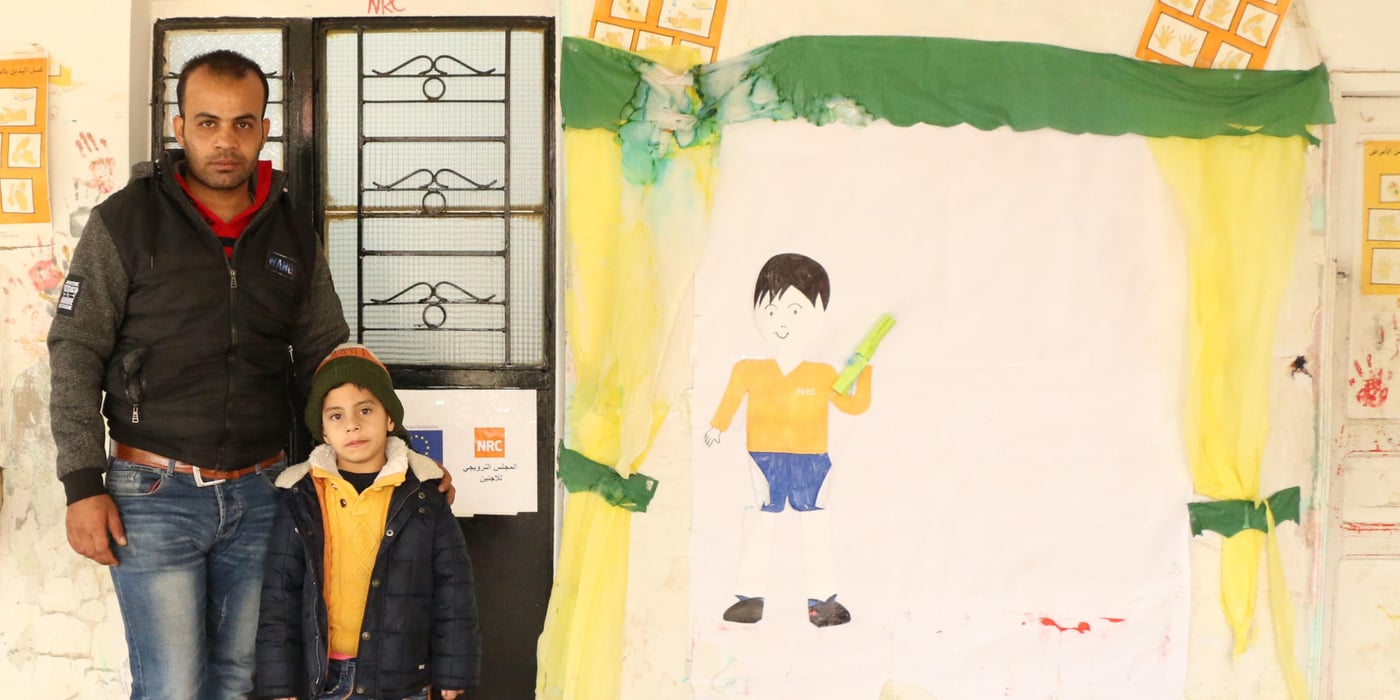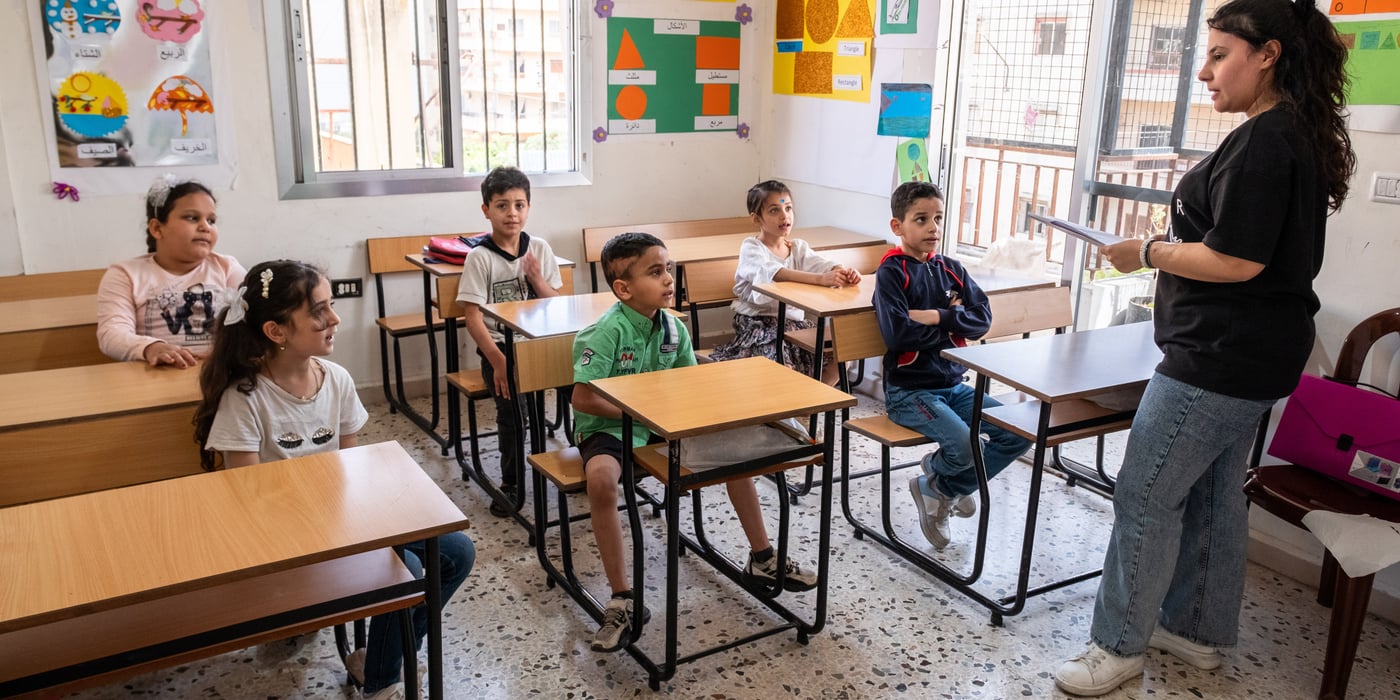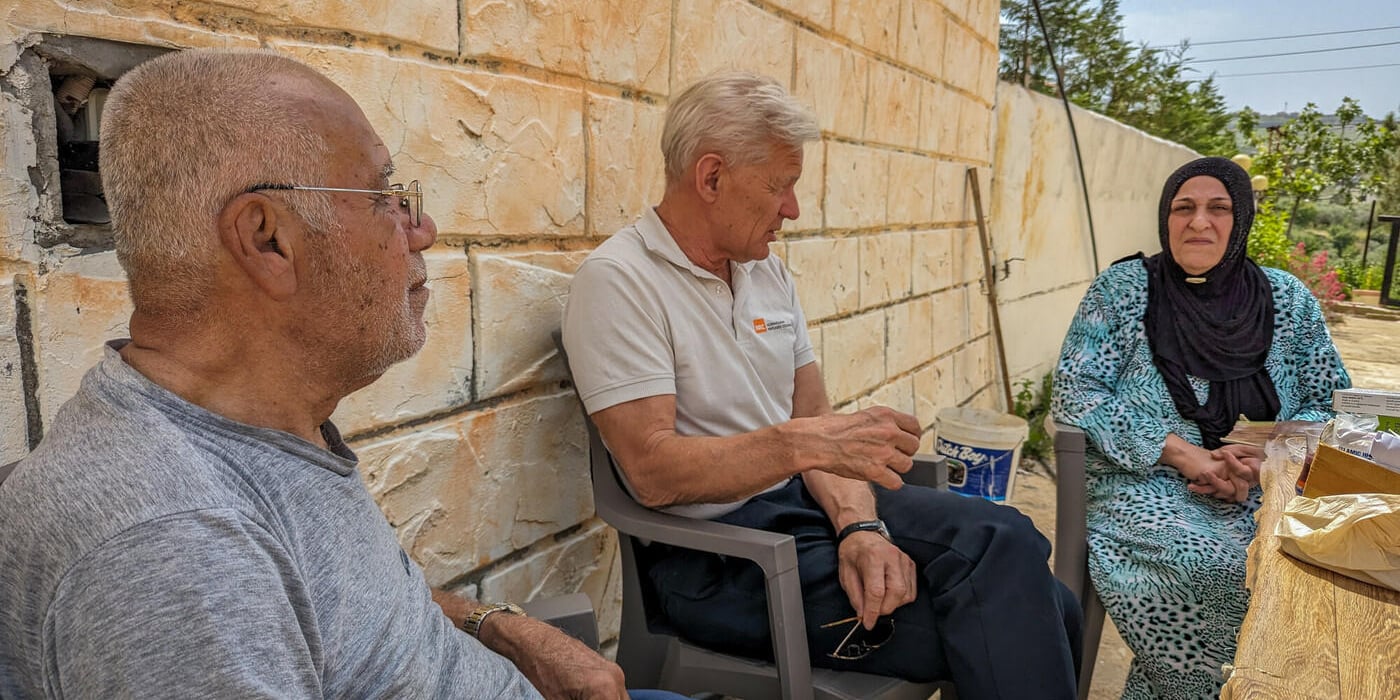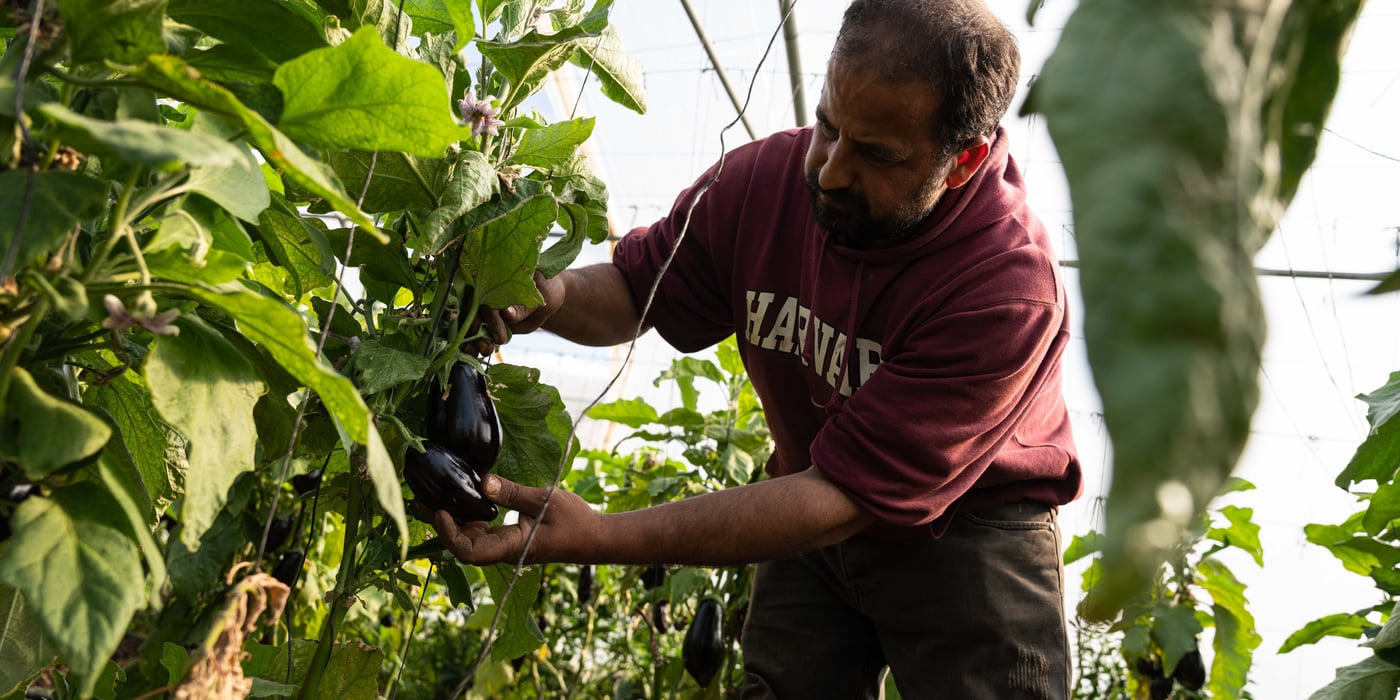
Mohammad fled the war in Syria in 2011 and settled in Lebanon’s Bekaa valley with his three children, Zeinab, Ali, and Ola. Two of them, Zeinab and Ali, attend the classes at the Norwegian Refugee Council’s (NRC) education centre in the Bekaa valley.
At the centre, which is funded by the European Civil Protection and Humanitarian Aid Operations (ECHO), we provide education to Syrian refugee children and youth who aren’t enrolled in schools. The programme, which has supported 250 students, boosts refugee children’s basic numeric, literacy, mathematics and language skills so that they can eventually integrate into Lebanese public schools.
It was through his interaction with this programme that Mohammad became involved in a community initiative.
Joined the Parents Community Group
One day, after attending a parent’s meeting at the centre, he was informed about the Parents Community Group (PCG) that our team was facilitating. Mohammad decided to join the group to further engage his interest in his children’s education.
“The role of the parent community is important. We as parents know the problems that our children face at home or at school, and it is easier for us to raise them to the education team at the centre.”
All learning centres have elected Parent Community Groups who are responsible for creating a conducive learning environment at the centre. The parents are always encouraged to create community initiatives that benefit their children and their learning processes.
Arranged a music ceremony
Mohammad takes his role seriously. He has initiated several activities to entertain the refugee children in the centre.
“Once, I suggested arranging a music ceremony at the centre for both children and parents to participate in,” Mohammad explains with enthusiasm. Together with the education team, he coordinated the event inviting a group of Lebanese musicians. “The musicians were happy to participate and offered it for free.”
The event gave Syrian children, their parents, and teachers a chance to connect and spend more time together. Such activities are important to create a comfortable and safe environment for children who have fled the war.
Parent and teacher collaboration
Mohammad thinks the parent groups are very important. “The teachers alone can’t take full responsibility of the teaching process. It is a collaborative effort between parents and teachers.”
In Bekaa, most of the public schools are taught on a French curriculum. Many of the Syrian parents never had a chance to attend school in Syria, and if they did, they studied English. Therefore, it is difficult for parents to help their children with their homework and they can’t afford to send them to private schools that teach in English.
“There are support classes at the education centre that helps children go through the lessons, revise on the subjects, and complete their homework,” explains Mohammad. “The cooperation between teachers and parents should always exist to create a healthy learning environment for students.”




